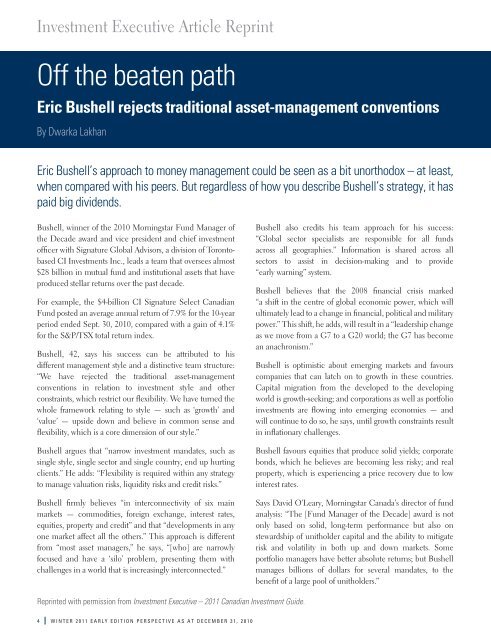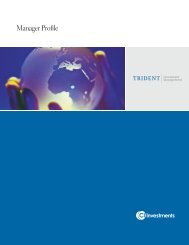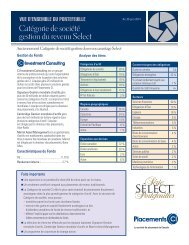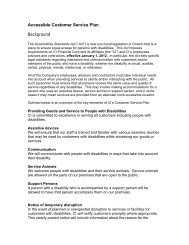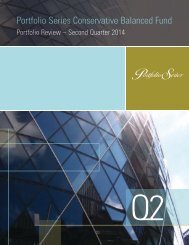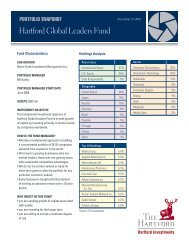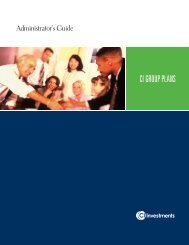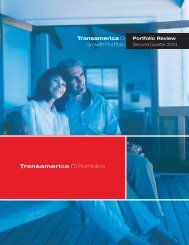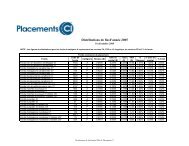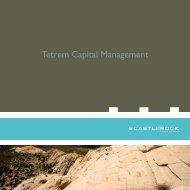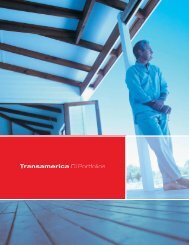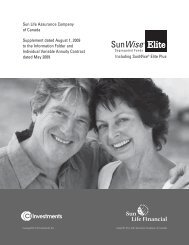January - Early Edition - CI Investments
January - Early Edition - CI Investments
January - Early Edition - CI Investments
- No tags were found...
Create successful ePaper yourself
Turn your PDF publications into a flip-book with our unique Google optimized e-Paper software.
Investment Executive Article ReprintOff the beaten pathEric Bushell rejects traditional asset-management conventionsBy Dwarka LakhanEric Bushell’s approach to money management could be seen as a bit unorthodox – at least,when compared with his peers. But regardless of how you describe Bushell’s strategy, it haspaid big dividends.Bushell, winner of the 2010 Morningstar Fund Manager ofthe Decade award and vice president and chief investmentofficer with Signature Global Advisors, a division of Torontobased<strong>CI</strong> <strong>Investments</strong> Inc., leads a team that oversees almost$28 billion in mutual fund and institutional assets that haveproduced stellar returns over the past decade.For example, the $4-billion <strong>CI</strong> Signature Select CanadianFund posted an average annual return of 7.9% for the 10-yearperiod ended Sept. 30, 2010, compared with a gain of 4.1%for the S&P/TSX total return index.Bushell, 42, says his success can be attributed to hisdifferent management style and a distinctive team structure:“We have rejected the traditional asset-managementconventions in relation to investment style and otherconstraints, which restrict our flexibility. We have turned thewhole framework relating to style — such as ‘growth’ and‘value’ — upside down and believe in common sense andflexibility, which is a core dimension of our style.”Bushell argues that “narrow investment mandates, such assingle style, single sector and single country, end up hurtingclients.” He adds: “Flexibility is required within any strategyto manage valuation risks, liquidity risks and credit risks.”Bushell firmly believes “in interconnectivity of six mainmarkets — commodities, foreign exchange, interest rates,equities, property and credit” and that “developments in anyone market affect all the others.” This approach is differentfrom “most asset managers,” he says, “[who] are narrowlyfocused and have a ‘silo’ problem, presenting them withchallenges in a world that is increasingly interconnected.”Bushell also credits his team approach for his success:“Global sector specialists are responsible for all fundsacross all geographies.” Information is shared across allsectors to assist in decision-making and to provide“early warning” system.Bushell believes that the 2008 financial crisis marked“a shift in the centre of global economic power, which willultimately lead to a change in financial, political and militarypower.” This shift, he adds, will result in a “leadership changeas we move from a G7 to a G20 world; the G7 has becomean anachronism.”Bushell is optimistic about emerging markets and favourscompanies that can latch on to growth in these countries.Capital migration from the developed to the developingworld is growth-seeking; and corporations as well as portfolioinvestments are flowing into emerging economies — andwill continue to do so, he says, until growth constraints resultin inflationary challenges.Bushell favours equities that produce solid yields; corporatebonds, which he believes are becoming less risky; and realproperty, which is experiencing a price recovery due to lowinterest rates.Says David O’Leary, Morningstar Canada’s director of fundanalysis: “The [Fund Manager of the Decade] award is notonly based on solid, long-term performance but also onstewardship of unitholder capital and the ability to mitigaterisk and volatility in both up and down markets. Someportfolio managers have better absolute returns; but Bushellmanages billions of dollars for several mandates, to thebenefit of a large pool of unitholders.”Reprinted with permission from Investment Executive – 2011 Canadian Investment Guide.4 WINTER 2011 EARLY EDITION PERSPECTIVE AS AT DECEMBER 31, 2010


